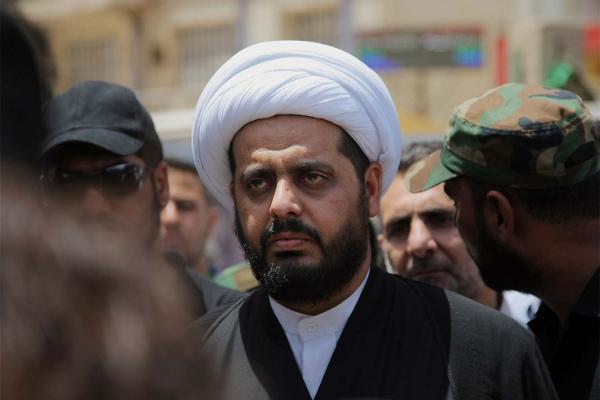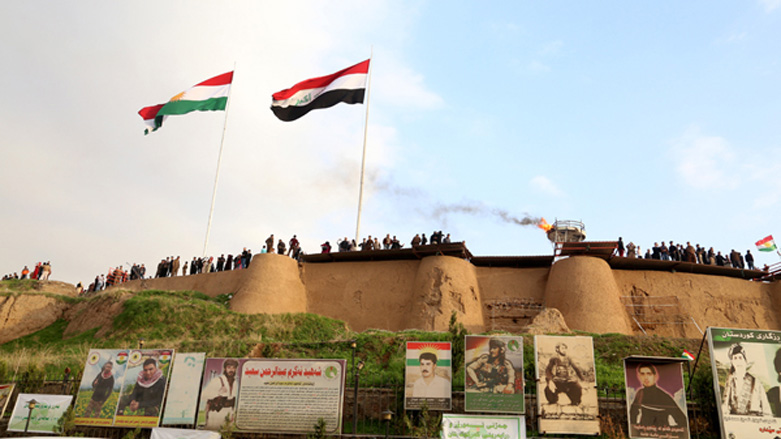Iraqi VP warns Shia militias not to spark ‘civil war’ in Kirkuk
.jpg)
ERBIL, Kurdistan Region (Kurdistan 24) – Iraqi Vice President Ayad Allawi on Monday warned of a possible “civil war” over the Kurdish-administered city of Kirkuk if negotiations between Erbil and Baghdad fail following the Kurdistan Region’s independence referendum.
Allawi urged officials in Kurdistan as well as Iraq to engage in dialogue to resolve their disputes over the oil-rich city.
The former Iraqi prime minister called on the central government in Baghdad to stop their Shia militias from opening the door to “violent conflict” in Kirkuk after threats from the head of the Asaib al-Haq militia.
Addressing worshippers in a sermon on Sunday, Qais Khazali, leader of the Asaib al-Haq, which falls under Shia militia Hashd al-Shaabi, said Kurds’ control of Kirkuk was equal to a “foreign occupation.”
“The government claims they control the [Hashd al-Shaabi]. If they do they should restrain them, rather than go into a kind of civil war,” Allawi told the Associated Press.
Kirkuk, a disputed territory between Erbil and Baghdad, is now under Kurdish-control after Iraqi forces abandoned their front lines in 2014 when the Islamic State (IS) rose to power. The Peshmerga forces remained and defended the province.
Ahead of the historic vote, Kurdistan Region President Masoud Barzani announced Kirkuk would be included in the referendum despite objections from Baghdad.
President Barzani previously said the people of Kurdistan would “not allow anyone to destabilize Kirkuk and create insecurity.”
“Kirkuk will always remain a model city with regards to peace, brotherhood, and coexistence between different ethnic and religious groups,” he added.
Although Kurds make up a majority of the province, Kirkuk is ethnically diverse and includes Arabs, Christians, Turkmens, and other components.
Following Kurdistan’s momentous Sep. 25 referendum where 92.7 percent voted for secession, Iraq and neighboring countries, including the US, rejected the results leading to increasing tensions between Baghdad and Erbil.
Despite Iraq enforcing sanctions and threatening military action against Kurdistan, the Region has repeatedly called for peaceful dialogue to resolve the issues.
Editing by Ava Homa


